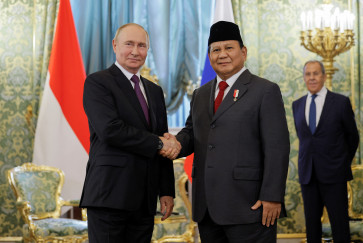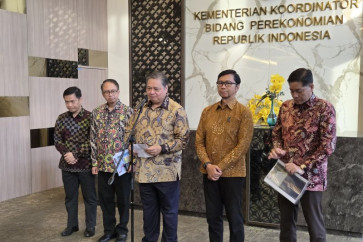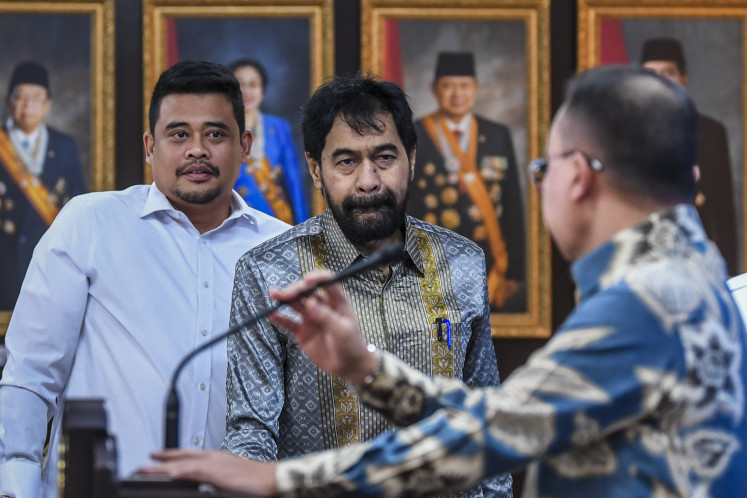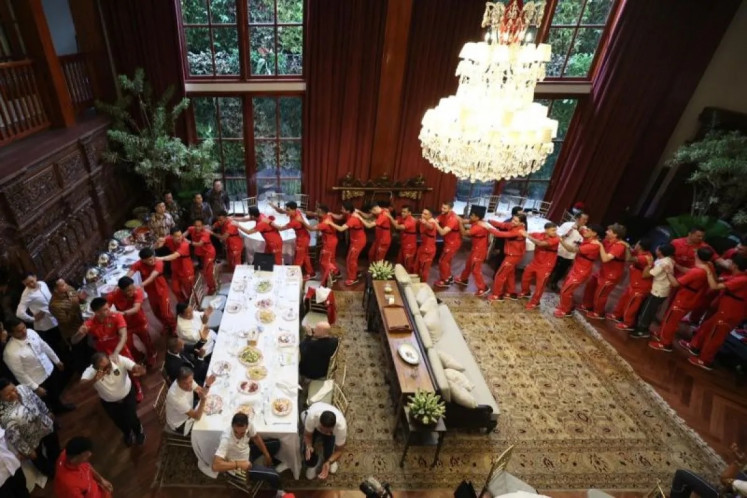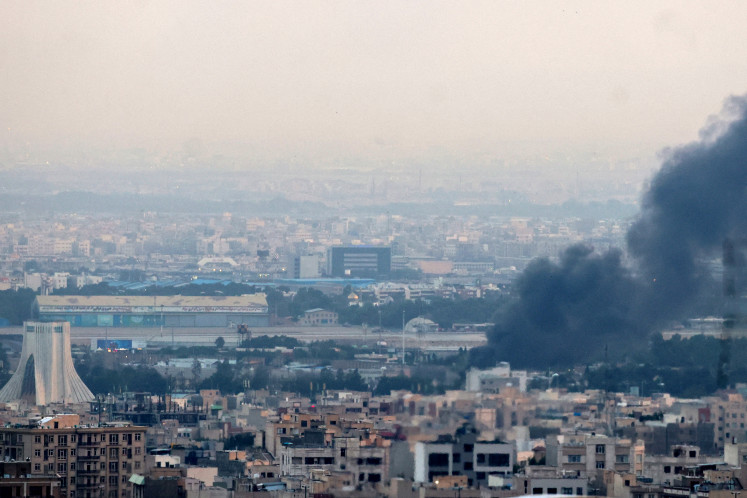Popular Reads
Top Results
Can't find what you're looking for?
View all search resultsPopular Reads
Top Results
Can't find what you're looking for?
View all search resultsLebaran, transformation from 'to have' into 'to be'
On the last day of schooling, at the schools where Muslim students and teachers are dominant, public or private, all are gathering, in the schoolyard or auditorium
Change text size
Gift Premium Articles
to Anyone

O
n the last day of schooling, at the schools where Muslim students and teachers are dominant, public or private, all are gathering, in the schoolyard or auditorium. Speeches, nuanced with certain repeated religious content about 'becoming sinless' after completing the month of fasting, are delivered by more than one teacher and concluded by the principal and then a recitation of congregational prayers.
Afterward, the students, one by one, moving in a circular line, shake the teachers' hands and occasionally followed with a hug, ask for their forgiveness and wish each other a blessing and luck. Contemporaneously, especially after the rapid development of communication media, short poetic messages via cell phones, finely decorated Lebaran cards, or direct telephone calls will also beckon the welcoming of Eid al-Fitr.
Other Muslims usually do the same in their places of work. Even non-Muslim working colleagues might actively participate. The essence is to forgive one another, the wish to start anew with a new spirit without the past best-forgotten humanly mistakes.
Over the following two days or even a week people will 'berlebaran', meeting with wide smiles and open arms and leaving without ill-feeling in their hearts. It is literally the meaning of the Arabic term Eid al-Fitr, i.e. the return to a condition of pureness; being and feeling sinless.
New clothes, repainted houses or new cars are only embellishments. Rather, Islam entails a religious obligation to offer charity, called zakat fitrah or alms to attain pureness, to ensure everybody can enjoy the days after their fasting without having to think about his or her subsistence. One of the highest achievements of being a Muslim should be, as the Prophet Muhammad said, the accomplishment of making others as happy as he is.
Anthropologically, we know that since the earliest recorded traditional community in the thousands of years of human civilization, that festivities are inevitably needed. It is essentially the way to establish communal bounds either loosely or firmly, because nobody can survive in isolation.
Here, community, in spite of its sometimes overbearing nature, enables or at least eases people in running their affairs.
In festivities, such as Eid al-Fitr, we can see solidarity, a Durkhemian term sociologically, renewed, strengthened or newly made, not only mechanically at a mosque at a heterogenic village but also at the places of work where solidarity is very organically systematized.
The mercy of God, if we may say it that way, in spite of diverse beliefs, comes inherently with the natural course of human beings living together.
Here, we then see religious teachings materialize generically and culturally along with scientific reasoning.
Whatever a puritan cleric may say at the pulpit, whether he attacks non-practicing Muslims or non-Muslims, we see that people leave this behind and practice what their rational minds tell them. Eid al-Fitr is for all, where a radical Muslim might be unable to reject a handshake from someone he hates.
Existentially, in the end, unlike the ordinary phenomenon on the days welcoming Eid al-Fitr ' when Indonesian Muslims usually spend great amounts of money buying things ' we learn that it is actually an instrument to enable a Muslims to differentiate between 'to be' from 'to have' and to practice this.
Owning many material goods and showing them to friends, neighbors or relatives is not the essence of the religious teaching (to have). On the feast days of breaking the fast, being a Muslim means being able to make others as happy as he is or even more (to be), a higher maqam or religious attainment position.
The obligation to pay charity before the sunrise of the first Shawwal ' the 10th month in Islamic lunar calendar ' when Muslims celebrate Eid al-Fitr, tells us that Islam teaches togetherness as a requirement of the process of 'to be' instead of 'to individually have' all things.
It is also a call to escape from alienation, a situation when things made or possessed coercively seize one's days and nights instead of liberating them.
Psychoanalytically, it is in line with the assertion by Eric Fromm that what makes people suffer is their inability to reconcile their consciences with their appropriating more possessions.
In conclusion, Eid al-Fitr, or Lebaran as it is popularly known in Indonesia, should connect people as both religious teachings and scientific reckoning tell us to.
Theoretically, it might be for Muslims, but culturally we see it as a festivity for all.
It gives blessings to Mr. Aziz, a Muslim selling clothes in Tanah Abang, economically, as well as to Mr. Achong, a non-Muslim Chinese selling sarongs in Mangga Dua, West Jakarta.
And to Mr. X, our preacher at the Eid al-Fitr day, we wish you all the best and ask you not to preach sermons dividing us from one another. Instead, guide us 'to be' true Muslims with love and solidarity, not to make us 'have' hatred and vengeance over those of a different religion from us.
The writer is a school manager and a researcher at Paramadina Foundation, Jakarta.


